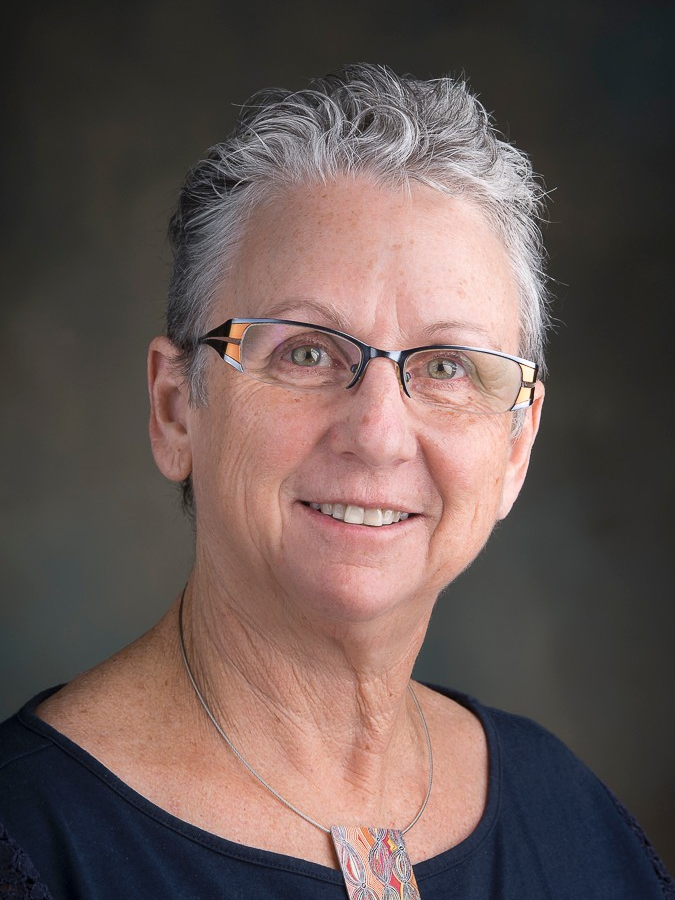- About
- People
- Undergraduate
- Graduate
- MA Programs
- PhD Programs
- Courses
- Graduate Studies Guide
- General Information
- MA in Sociology or Anthropology
- PhD in Sociology or Anthropology
- Committee Composition, Supervision and Choice of Topic
- Progress Reports
- Course Grade Appeals
- Graduate Student Offices, Computer Lab and Meeting Spaces
- Leaves and Withdrawals
- Applications for Program Extension
- Funding
- Graduate Student Association
- Current Graduate Students
- Forms
- Alumni
- Research
- News & Events

Pamela Stern
Biography
Pamela Stern is a socio-cultural anthropologist who conducts research in two main topical areas: 1) citizenship, and 2) the history and practice of anthropology.
Dr. Stern’s research on citizenship focuses on the ways in which individuals and communities experience and enact their feelings of obligation and belonging to each other and to the state. She is particularly interested in employment as a site of citizenship attachment. Dr. Stern has conducted ethnographic fieldwork related to citizenship in three sites, all within Canada: Ulukhaktok, an Inuvialuit community in the Northwest Territories; Cobalt, Ontario; and New Westminster, British Columbia.
Education
PhD (Anthropology), University of California, Berkeley
MA (Anthropology), University of Pittsburgh
BA (Anthropology), University of Florida
Current Research
Historicizing Canadian Inuit Ethnography, SSHRC Insight Grant, 2017-2023
In my critical survey of ethnographic research in the Canadian North, I am interrogating the involvement of anthropologists, geographers, and other social scientists in Canadian government’s administration of Inuit lands and communities in the decades immediately following the Second World War. This historical ethnography involves archival work and oral history with ethnographers from the period when Inuit were resettled into newly established permanent towns and villages where they were subjected to day-to-day surveillance by institutions and agents of the state.
Select Publications
Books
- 2022 (editor). The Inuit World, Routledge, London.
- 2015 (editor). Reading Cultural Anthropology: An Ethnographic Introduction, Oxford University Press, Toronto.
- 2015 (coauthored with Peter V. Hall). The Proposal Economy: Neoliberal Citizenship in “Ontario’s Most Historic Town”, UBC Press, Vancouver.
- 2006 (co-edited with Lisa Stevenson). Critical Inuit Studies: an anthology of contemporary Arctic Ethnography, University of Nebraska Press, Lincoln.
Journal Articles and Book Chapters
- In press Traveling Tales: Inuit in Anthropological Theory, invited chapter for Routledge Handbook of Arctic Anthropology, edited by Florian Stamler, Piers Vitebsky, Nuccio Mazzullo and Teresa Komu, London: Routledge.
- 2023 (co-authored with Ece Arslan) The art of Inuit administration: Post-War Canada, cultural diplomacy, and northern administration. Polar Record 60(4):1-12. [link]
- 2019 The ghosts of mining past: a settler colonial story, Anthropology and Humanism 44(2): 231-247.
- 2019 The ‘Eskimo Problem’: legitimizing Canadian Arctic administration, 1960-1975, Urbanities-Journal of Urban Ethnography 9(S2): 61-66. [link]
- 2019 (co-authored with Peter V. Hall) ‘I don't want my town turned into a spectacle’: Planning the future in an insecurely urban place, Museum Anthropology, 42(1): 28-41.
- 2018 Jean L. Briggs (1929-2016), American Anthropologist 120(2): 377-379.
- 2017 The nature of urban heritage: the view from New Westminster, British Columbia, Anthropologica 59(2): 295-309. [link]
- 2015 (co-authored with Annika Airas, Peter V. Hall) Asserting historical ‘distinctiveness’ in industrial waterfront transformation, Cities 44: 86-93. [link]
- 2015 Super Shamou versus Captain Al Cohol: cultural productions and the discourses on Inuit drinkers, Topia 32: (special issue “Theory in a Cold Climate” edited by Peter van Wyck) [.pdf]
- 2010 (co-authored with Peter V. Hall) The Proposal Economy, Critique of Anthropology, 30(3): 243-264. [link]
2010 (co-authored with Peter V. Hall) Historical Limits: Narrowing Possibilities in Ontario’s ‘Most Historic Town’, The Canadian Geographer, 54(2): 209-227. [link] - 2009 (co-authored with Peter V. Hall) Reluctant Rural Regionalists, Journal of Rural Studies, 25(1): 67-76. [link]
Completed Projects
Decolonizing Municipal Monuments and Landmarks, SSHRC Partnership Engage Grant, 2019-2021
Municipalities, museums, universities, and other public institutions are confronting multiple challenges to their naming, memorialization, and display practices, and New Westminster is no exception. It is now widely understood that many of the individuals or events once celebrated as heroic, in fact caused harm to marginalized groups and individuals. As such, for many, place-naming practices, heritage sites and historic monuments are experienced as ongoing state-sanctioned violence. In this collaborative project I am working with the New Westminster Museum and Archives to examine the naming and the naming and siting of monuments and other heritage resources in the City of New Westminster, British Columbia. This collaborative research will advance the municipality's effort to bring its heritage practices in line with its policies calling for Indigenous reconciliation, multiculturalism, and inclusive governance.
Nunavut’s Urban Futures: Housing and an Emerging Northern Public Realm, SSHRC Insight Grant, 2014-2018 (co-applicant with Mason White, School of Architecture, Univ. of Toronto (P.I.) and Lola Shepard, University of Waterloo). Searchable annotated bibliography on Inuit housing in Canada.
(Re)Claiming the New Westminster Waterfront, SSHRC Partnership Development Grant, 2012-2015 (co-applicant with Peter V. Hall (P.I.), Susan O’Neill, Willeen Keough, and Mary-Ellen Kelm)
This engaged research was a collaboration of faculty and students from Simon Fraser University, the New Westminster Museum and Archives, pensioners from Local 502 of the International Longshore and Warehouse Union, and individual community members to trace changes in waterfront work and in the ways urban waterfronts have been socially redefined as sites of non-work. Learn about the project and access primary data, including oral history interviews with waterfront workers here.
Pamela Stern’s curriculum vitae (Nov 2024)

